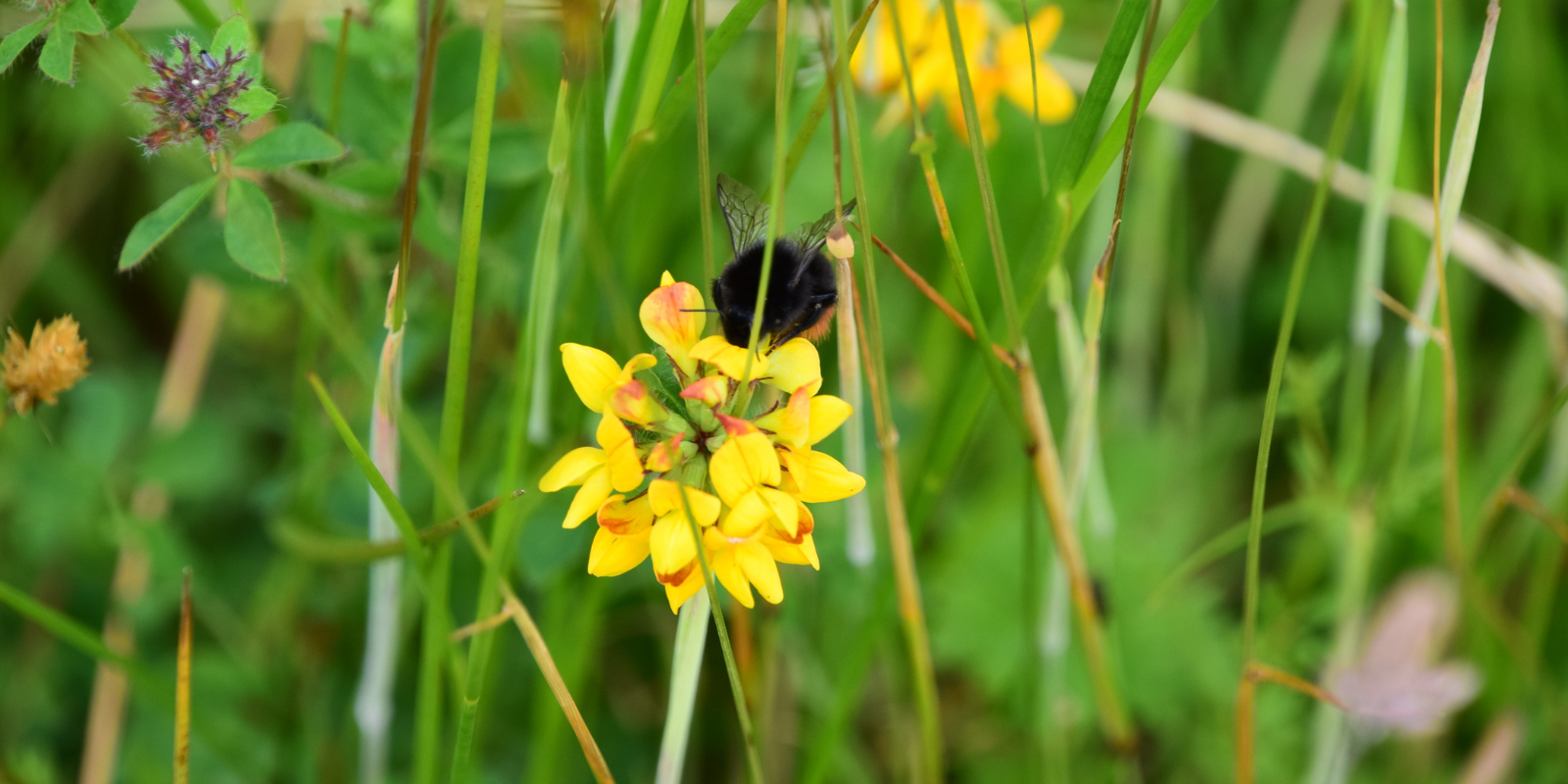Join us in celebrating the wonderful bee this World Bee Day on 20 May.
These beautiful, fascinating creatures that play such a vital role in our ecosystem are still in decline, facing multiple threats from human activity.
On World Bee Day, we are raising awareness of the role bees play in keeping us and our planet healthy, and what we can do to help them.
In 2018, the Government of Slovenia led the UN General Assembly to declare 20 May as World Bee Day – choosing the date because it was the birthday of Anton Janša, a pioneer of modern beekeeping in Slovenia where beekeeping is a way of life for many families and communities.
World Bee Day provides an opportunity for all of us to promote actions that will protect bees and enhance their habitats.

Our ecosystem depends on bees
Today bee populations are still declining. Thirty-five UK bee species are under threat of extinction and all species face serious threats, from habitat loss to pesticide use, and changes to climate which are disrupting their behaviour patterns.
Bees are a keystone in our ecosystem. They sustain our agriculture by pollinating our food crops – apples, carrots and broccoli all rely on pollination by bees. They pollinate our trees and wildflowers, providing food and shelter for other insects which go on to be food for birds, bats and mammals. We really can’t do without them!
What are we doing?
Protecting and enhancing bee populations is extremely important to us here at The Future Forest Company. We’re monitoring populations on our sites by carrying out bee transects on the wildflower meadow project areas on five of our properties: Dumyat, Leadloch, Brodoclea, Carston & Pleasantfield.
Bee transects involve walking along a route once a month and counting the number of bees seen, and if possible, the species too. We don’t catch the bees - their identification to species depends on how quickly they fly by and the expertise of the surveyor! This is our first year doing bee transects as we want to compare changes in the bee populations as we enhance these currently degraded meadows through wildflower plug planting, sensitive management and some seed sowing. We have some keen volunteers who do the transects for us along with some of our own staff.

How can you help bees?
There are lots of easy ways to help bees!
🐝 Make your garden or outdoor space bee-friendly by planting lots of nectar-rich flowers
🐝 Leave your lawnmower in the shed and let the dandelions grow – bees love a dandelion!
🐝 Be a bee activist and ask your local council to let wildflowers bloom on grass verges
🐝 Buy or build a bee hotel and hang it up in a sunny, sheltered spot
🐝 Leave the pesticides in the shop, they can kill bees or affect their ability to reproduce
🐝 Sponsor the planting of a wildflower meadow with us and help the recovery of our bee and other vital pollinator populations
